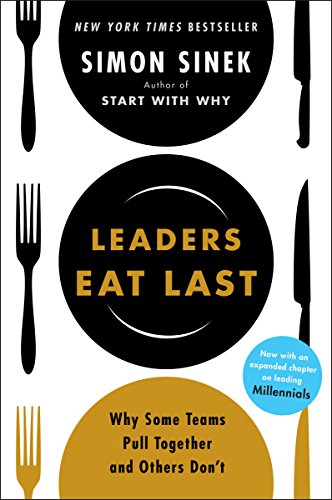
Leaders Eat Last: Why Some Teams Pull Together and Others Don't

friends. In the linear hierarchies in which we work, we want the folks at the top to see what we did. We raise our hands for recognition and reward. For most of us, the more recognition we get for our efforts from those in charge, the more successful we think we are. It is a system that works so long as that one person who supervises us stays at th
... See moreSimon Sinek • Leaders Eat Last: Why Some Teams Pull Together and Others Don't
A leader’s legacy is only as strong as the foundation they leave behind that allows others to continue to advance the organization in their name. Legacy is not the memory of better times when the old leader was there. That’s not legacy, that’s nostalgia.
Simon Sinek • Leaders Eat Last: Why Some Teams Pull Together and Others Don't
human beings, the end users of all this, become so far removed from the people who mean to serve them that they simply become just another metric to be managed. The more distance there is between or the more things we do that amplify the abstraction, the harder it becomes to see each other as human. It is not the abundance we need to manage or rest
... See moreSimon Sinek • Leaders Eat Last: Why Some Teams Pull Together and Others Don't
To see money as subordinate to people and not the other way around is fundamental to creating a culture in which the people naturally pull together to advance the business.
Simon Sinek • Leaders Eat Last: Why Some Teams Pull Together and Others Don't
To really inspire us, we need a challenge that outsizes the resources available. We need a vision of the world that does not yet exist. A reason to come to work. Not just a big goal to achieve.
Simon Sinek • Leaders Eat Last: Why Some Teams Pull Together and Others Don't
The company grew because of the people who already worked there.
Simon Sinek • Leaders Eat Last: Why Some Teams Pull Together and Others Don't
When the people have to manage dangers from inside the organization, the organization itself becomes less able to face the dangers from outside.
Simon Sinek • Leaders Eat Last: Why Some Teams Pull Together and Others Don't
The ability of a group of people to do remarkable things hinges on how well those people pull together as a team.
Simon Sinek • Leaders Eat Last: Why Some Teams Pull Together and Others Don't
The leaders of great organizations do not see people as a commodity to be managed to help grow the money.